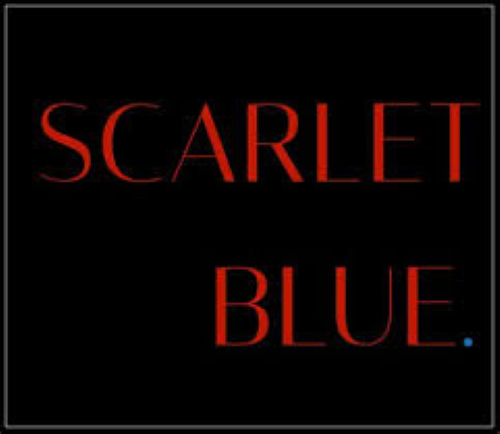Once, women were expected to stay silent and submissive when faced with sexual harassment or assault. However, in recent years, we have seen a powerful wave of activism and resistance against these outdated expectations. From the Slut Walks movement to the viral #metoo hashtag, women are taking a stand against sexual stereotypes and reclaiming their voices and power.

-
Sexy singles nearby, waiting
-
Great for mobile users

-
Meet real people for sex
-
Zero upgrade fees

-
Live out your fantasies
-
59.3k+ users online now

-
Fun and fast sex hookups
-
Never miss a chat moment

-
Easy, fast sex - no waiting
-
28.2k+ members online now

-
Explore all kinds of pleasure
-
Free chat access

-
Flirt and explore safely
-
98.5k+ members online now

-
Real people, real pleasure
-
Users online today: 89,464+

-
One night stands nearby
-
Optimized for mobile screens
A Brief Overview: The Concept of Sexual Stereotypes
Before diving into the specifics of each dating site, it is essential to understand the concept of sexual stereotypes and why they are harmful. A stereotype is an oversimplified belief or image held about a particular group or category of people. Though some may find it taboo, engaging in intimate conversations through adult phone lines can be a fulfilling and gratifying experience. When applied to sexuality, these beliefs can be damaging as they often reinforce narrow definitions of what it means to be a man or a woman. Often, couples who are looking to spice up their sex life turn to free threesome apps as a safe and convenient way to find like-minded individuals for a steamy encounter.
Traditionally, women were expected to adhere to strict gender roles such as being nurturing caregivers and homemakers while men were supposed to be strong breadwinners. These rigid expectations created barriers that prevented people from expressing themselves fully without fear of judgment or criticism.
In recent decades, however, there has been a push towards breaking down these traditional gender roles and embracing diversity in all its forms. This movement towards inclusivity extends beyond just gender identity but also includes sexual orientation, race, ethnicity, disability status, etc.
Fighting Against Sexual Stereotypes Through Activism: The Emergence of Slut Walks
One form of activism that has gained prominence in the fight against sexual stereotypes is the Slut Walk. The first Slut Walk took place in 2011 in Toronto, Canada, after a police officer commented that women should avoid dressing like sluts to protect themselves from sexual assault. This victim-blaming mentality sparked outrage and led to a protest march where participants reclaimed the word slut and challenged societal norms regarding women’s sexuality.
The movement quickly spread globally, with marches taking place in major cities around the world. These walks aimed to raise awareness about rape culture and end the stigmatization of survivors based on their clothing choices or sexual behavior. By redefining what it means to be a slut, these activists were reclaiming control over their bodies and challenging harmful stereotypes.
#metoo: From Social Media Movement to Cultural Shift
In October 2017, actress Alyssa Milano tweeted the now-famous phrase #metoo as a way for people to share their experiences of sexual harassment and assault. Within hours, thousands of individuals had joined in on social media platforms, highlighting just how prevalent this issue is across all industries.
The #metoo movement not only revealed the widespread nature of sexual harassment but also created a safe space for victims to speak out without fear of judgment or retaliation. It sparked important conversations about consent, power dynamics, and accountability while also holding abusers accountable for their actions.
The Role of Dating Sites in Challenging Sexual Stereotypes
While online dating sites have been criticized for perpetuating superficial beauty standards and promoting hookup culture, they can also serve as powerful tools for breaking down sexual stereotypes.
Digital Spaces for Marginalized Communities
One significant benefit of online dating is the ability to connect with people outside one’s immediate social circle. This feature has been particularly impactful for marginalized communities, such as LGBTQ+ individuals and people of color.
On conventional dating sites, these groups may face discrimination or feel invisible due to narrow beauty standards perpetuated by mainstream media. After discussing the importance of healthy sexual relationships, it’s important to address finding sexual partners in a responsible and respectful manner. However, on niche dating sites like BeNaughty, individuals can find like-minded partners who share their interests and values without facing judgment or exclusion.
Fighting Against Gender Stereotypes Through Friendswithbenefits
The concept of friends with benefits (FWB) relationships challenges traditional gender roles by promoting sexual freedom and non-monogamy. On friendswithbenefits, users are encouraged to be upfront about their intentions and desires, creating a space where individuals can express themselves authentically without fear of judgment.
By embracing FWB relationships, this platform is breaking down harmful stereotypes that men should always want sex and women should not. It promotes consensual exploration of sexuality and empowers individuals to define their own boundaries instead of conforming to societal expectations. There are plenty of websites for hookups that require no sign up, making it easier than ever to find casual connections without any hassle.
Pros:
- Broadens horizons by connecting with diverse individuals
- Caters to marginalized communities
- Encourages open communication about desires and boundaries
- Promotes sexual liberation and breaks down harmful stereotypes
Cons:
- Social stigma surrounding FWB relationships may discourage some from joining the site
- Lack of physical proximity could make it difficult to form meaningful connections
- Risk of encountering fake profiles or scams
- Potential for perpetuating superficial beauty standards
Conclusion: The Ongoing Fight Against Sexual Stereotypes
The history of fighting back against sexual stereotypes has been a long and ongoing struggle, and online dating sites are just one piece of the puzzle. These platforms have their pros and cons, but they also serve as a reflection of society’s progress towards inclusivity and acceptance.
BeNaughty and friendswithbenefits may not be perfect, but they play an essential role in promoting diversity and breaking down harmful stereotypes that have existed for far too long. As we continue to challenge societal norms and strive for equality, these dating sites will undoubtedly evolve with us, paving the way for healthier and more authentic relationships.

BeNaughty
✔️ Zero bots and millions of members
✔️ Guaranteed sex
✔️ Best matchmaking

Friends With Benefits
✔️ Sign up for free now
✔️ Read members sexy diaries
✔️ Receive winks & naughty photos

AdultWork
✔️ Europes biggest escort directory
✔️ Browse movies, erotica & blog posts
✔️ Webcam, phone chat & SMS chat available

Scarlet Blue
✔️ Meet for sex or romantic companionship
✔️ Available across Australia & New Zealand
✔️ Discreet secure confidential site

SecretBenefits
✔️ Great alternatives to escorts
✔️ Start today for free
✔️ Two-factor authentication safety feature

Ashley Madison
✔️ Safe & discreet affairs
✔️ Great to use instead of escorts
✔️ No payment, sign up for free
What does the term sluts refer to?
The term sluts is a derogatory and offensive word used to refer to women who are perceived as sexually promiscuous or immoral. It implies a lack of morals and respectability, often used to shame and degrade women for their sexual behavior. This term perpetuates harmful stereotypes and reinforces sexist attitudes towards women’s sexuality.
Is the term sluts considered derogatory or offensive?
The term sluts is considered to be derogatory and offensive. It is used to shame or belittle women for their sexual behavior, perpetuating harmful stereotypes and double standards. The word carries a negative connotation and reinforces the idea that women should be judged based on their sexual activity. Many people find this term to be disrespectful and degrading towards women, making it important to avoid using it.
How can I report someone using the term sluts in a disrespectful manner?
If you witness someone using the term sluts in a derogatory or disrespectful manner, it is important to speak up and report their behavior. You can start by confronting the person directly and explaining why their language is inappropriate and offensive. If they continue to use this term or if you do not feel comfortable addressing them directly, you can report the incident to a higher authority such as a teacher, supervisor, or HR representative. It’s important to stand up against slut-shaming and promote respect for all individuals.